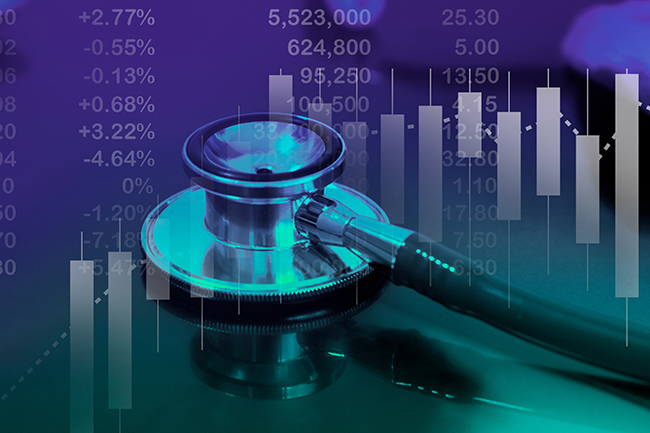Last week, we all witnessed a great deal of economic data and actions by the U.S. Federal Reserve.
The Federal Reserve’s Federal Open Market Committee (FOMC) decided that the U.S. inflation rate was too high, and that warranted an increase in the U.S. Federal Funds interest rates. They increased rates by 75 basis points or 0.75%, what is considered an extra ordinary increase. As we have noted, major U.S. banks are very concerned that extremely high inflation will force the FOMC to cause a U.S. recession. We have noted before in this series that we believe the U.S. is in a recession, even if it’s a recession like no other. As of mid-week, the U.S. Consumer Price Index (CPI) was reported up 9.1%, a number we in the U.S. have not seen in four (4) decades. The FOMC says it pays more attention to the Personal Consumption Expenditures (PCE) – as reported on CNBC[1],
The personal consumption expenditures price index rose 6.8% in June, the biggest 12-month move since the 6.9% increase in January 1982.
We will not get into the weeds on the difference between CPI and PCE however, in general, the PCE does not measure food, fuel, and uses a “housing replacement cost” that, in my personal opinion, underestimates actual housing costs. As irony would have it, food, housing, and fuel are fundamental to life in the U.S. and to the consumers pocketbook. One should also be mindful of the spread between the PCE and the CPI. If the FOMC is gauging the economy by the PCE with less regard for the CPI, which is where the population is “living,” then the FOMC guidance could very well misjudge the consumer sentiment.
As I was completing this blog, it was also reported that U.S. GDP contracted by 0.90% in the 2nd Quarter of 2022, this follows a drop of 1.4% in 1st Quarter of 2022. So, doing simple math, the U.S. economy has contracted by 2.3% for the first six (6) month of this year. Wow! I recall 1982 really well, and to this day, I still have trauma about the economics of that year working in real estate.
In contrast, the U.S. Congressional Budget Office (CBO)[2] projected in May 2022 that the U.S. economy would grow by +3.1% in 2022 – I bet they wish they could pull that report back! Historically, and since the 1950s, two consecutive quarters of economic contraction have been the accepted as the definition of a “recession.” The National Bureau of Economic Research is the “official arbiter of U.S. recessions.” If you look at any headline, you will see a lot of headlines that the “U.S. is not experiencing a recession.” The White House just opined on the subject and as reported by AXIOS and CNBC[3][4] :
White House: Even if GDP contracted, it’s not a recession.
They say that even if the number turns out to show a second straight quarter of negative growth, the U.S. economy was almost certainly not in a recession in the first half of this year.
Honestly, none of this makes sense, and is why we started this series of blogs at the beginning of July discussing a U.S. recession.
Former Fed Chair, Janet Yellen, and now Treasury Secretary says, the “U.S. economy is not in a recession, despite GDP ‘slump’.” With respect, a drop in GDP of 2.3% is closer to a tumble than a slump. Again, Secretary Janet Yellen said Thursday, “the U.S. economy is in a state of transition, not recession.” Interesting, what Secretary Yellen did not say was transition to what!
We started this series on July 5, 2022, putting forward our belief that that the U.S. was already in a recession (frankly we think it will get much worse, that we’re on the leading edge of the drop). This idea was based on observations of the U.S. economy, and even more interesting, in one of the fastest growing states in the U.S., Florida. We also noted that the best place to be in is healthcare, as highlighted by three (3) U.S. based banks.
As mentioned in our previous blogs of this series, we have advocated that U.S. is a great investment place to be. We would double down on this even more. However, something amazing happens in healthcare that hasn’t happened in any other industry that we can think of.
The U.S. government effectively sets the base rates of healthcare physician reimbursements, and those rates generally serve as a starting point for all negotiations from insurance companies and provider of care, from hospitals to primary care physician. For 60 years, healthcare cost has never gone down relative to GDP, and separately, it has been a leader in cost relative to other industries relative to the PCE.
Medicare sets rates on a complex formula that reflects cost to provide care, including professional time, personnel, real estate, and other practices operating cost. With more and more healthcare encounters growing every year, inflation adjusted reimbursement has been going down for many segments of healthcare. The complexity and the total gross cost continue to rise and is projected to continue to go up 5-6% going forward; however, that was before the current explosion of inflation which we imagine will reset that projection.
We believe we must increase patient access (more later) and increase the quality of care, while also reducing the cost of delivery. This may seem like an oxymoron however, we can forecast that with the right combination of technology ‘infused’ care™, to key elements of the delivery process, we can accomplish greater and easier patient access, improve quality of care, and reduce cost. We can forecast that future healthcare cost will exceed the projected 65.
More to come in our next blog.
-Noel J. Guillama, Chairman
[1] https://www.cnbc.com/2022/07/29/inflation-figure-that-the-fed-follows-closely-hits-highest-level-since-january-1982.html
[2] https://www.cnbc.com/2022/05/25/cbo-releases-us-gdp-growth-inflation-estimates.html#:~:text=The%20nonpartisan%20Congressional%20Budget%20Office%20estimated%20that%20real,1.5%25%2C%20respectively%2C%20but%20still%20below%20this%20year%E2%80%99s%20pace.
[3] https://www.axios.com/2022/07/21/biden-recession-gdp
[4] https://www.cnbc.com/2022/07/28/yellen-says-the-economy-is-not-in-a-recession-despite-gdp-slump.html

